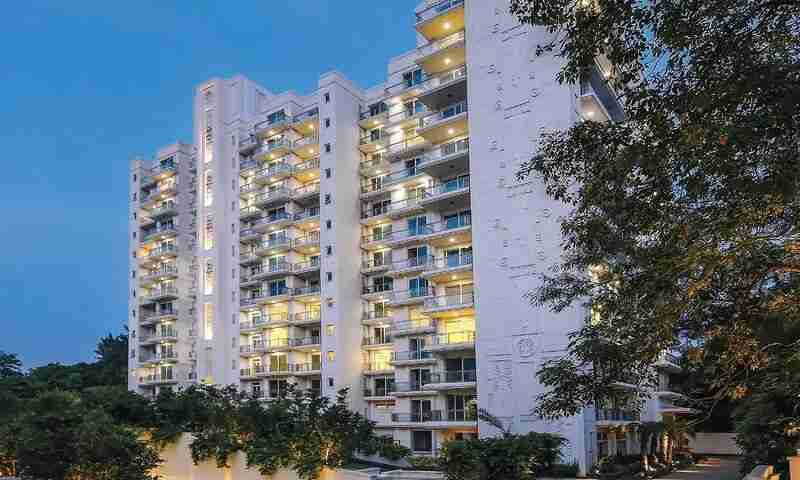GPA vs Registry Property in Delhi NCR: Buyer’s Guide 2025
If you’re exploring property options, the terms GPA property in Delhi NCR and registry property can quickly become confusing. Many buyers struggle to spot the real differences and the risks hiding behind each term before investing large sums.
Getting clarity is crucial, especially with so much at stake in Delhi NCR’s unique property landscape. Here is what you should know about the differences between GPA and registry property.
Quick Overview – GPA vs Registry Property in Delhi NCR (2025)
| Factor | Details |
|---|---|
| Legal Status | Registry flats are legally owned and recorded; GPA is not legal ownership. |
| Loan Eligibility | Registry property qualifies for home loans; GPA property does not. |
| Resale Value | Registry flats have higher resale potential and better liquidity. |
| Ownership Security | Registry = Safe and Permanent | GPA = Risky & Revocable. |
| Best Choice (2025) | Registry Flats in Delhi NCR for long-term safety and ROI. |
What is a GPA Property?
A GPA property refers to one transferred via a General Power of Attorney (GPA). Basically, the original owner gives someone the legal authority to manage or sell their property. In many unauthorised colonies across Delhi NCR (for instance, many plots in outer colonies and villages), this method is standard as people want to buy or sell even when proper documents are missing.
GPA agreements can sometimes seem quick and practical, yet they rarely stand as firm legal ownership. This is because GPAs function on trust and paperwork rather than state approval.
Imagine an owner who cannot technically register their plot decides to sell – what they’ll do instead is sign over control using a GPA. This is how thousands have bought land or homes in localities where registry flats in Delhi NCR weren’t an option.
The convenience looks tempting on paper, but the risks can pile up with time, especially whenever the government cracks down or rules shift.
What is a Registry Property?
A registry property is one whose ownership is officially registered with the authority – usually the local Sub-Registrar’s office. This process involves executing a sale deed, paying applicable stamp duty and registration charges, and recording the buyer as the new legal owner.
Unlike GPA-based purchases, registry flats in Delhi NCR come with clarity and certainty. When registered in the government’s records, the buyer can rest easy about ownership status – loans can be sanctioned, and passing assets to legal heirs is much smoother.
In short, registry property is the gold standard for clean, dispute-free ownership (especially where buyers plan for long-term family security or resale).
GPA vs Registry Property: A Clear Comparison
Choosing between these two types is a decision no one should rush. Here’s a straightforward comparison that brings out what really matters in 2025:
| Factor | GPA Property (GPA vs registry flats in Delhi) | Registry Property (GPA vs registry property) |
|---|---|---|
| Legality | Not treated as legal ownership in courts | Full legal recognition |
| Owner Rights | Limited, vulnerable to disputes | Safeguarded via government channels |
| Bank Loans | Rarely approved | Readily approved for registry flats in Delhi NCR |
| Resale Ability | A risky proposition | Smooth and simple |
| Investment Security | Prone to GPA property risks | Strong registry property advantages |
| Regularisation Prospects | Unpredictable, based on government schemes | Always valid |
The comparison between GPA vs registry flats in Delhi summarises the fundamental distinction – buying registry flats in Delhi NCR is a preference for banks and buyers.
Legality in 2025: A Closer Look
The legal standing of GPA property in Delhi NCR has changed greatly in the last few years. In a significant Supreme Court judgement, it was declared that GPA sales alone cannot substitute for genuine property sales.
The court made it crystal clear that true ownership requires a registered sale deed. Fast-forward to 2025, and initiatives like the Delhi Government’s PM UDAY scheme have rolled out, aiming to regularise properties in unauthorised colonies.
Some buyers using GPA documents are now able to register those under specific conditions if the house falls within the notified areas. Even so, this regularisation has its limits. Only select zones get covered, and buyers must clear past financial and legal requirements.
This is why, in the current context, investing your savings in registry flats in Delhi NCR has become the more reliable, risk-free path for buyers planning to settle down or invest for the future.
Pros and Cons: Safety Matters Most
Registry property advantages are hard to beat if you want security. Banks offer loans for registry flats, making it easier for end-users to finance home purchases. Selling or bequeathing these properties is uncomplicated, and buyers avoid the trouble of legal tussles.
Conversely, GPA property risks are impossible to ignore. Banks avoid them completely, so buyers often pay in cash (with no loan or EMI support).
Later, if disputes occur—whether from previous owners or during family settlements—legal support is limited. GPA documents can also be revoked or contested. Although there’s a short-term appeal of lower prices, these purchases can prove costly when challenged in court.
To summarise the pros and cons:
- Registry Property Advantages:
- Legal ownership backed by government registration
- Eligibility for bank loans and financial assistance
- Easier resale and transfer processes
- Reduced risk of ownership disputes
- GPA Property Risks:
- Lack of officially registered ownership
- High chances of legal disputes or document revocation
- Difficulty in securing bank finance
- Potential complications in future resale or inheritance
There’s no denying some investors seek GPA property in Delhi NCR for potential future benefits or quick deals. Yet, for most buyers, especially those valuing peace and safety, registry flats tend to be the wiser choice.
Buyer’s Perspective: End-User vs Investor
Putting ourselves in a buyer’s shoes helps clarify which option suits whom.
If you are buying a home to live in or to secure your family’s future, registry flats in Delhi NCR offer the lasting value and legal safety necessary. Loans are accessible, and services like utilities or titles pose fewer hassles.
Investors may find lower prices in GPA properties tempting, assuming rapid profits from price appreciation or future government policies. However, the GPA property risks mean uncertain ownership and shaky resale possibilities.
While a small payoff might be earned short-term, long-term buyers and cautious investors prefer the clear-cut ownership registry flats provide. Choosing registry flats in Delhi NCR means paying a bit more but gaining security that money cannot easily replace.
Conclusion
Deciding between a registry and a GPA property in Delhi NCR is about weighing safety against short-term gain. Registry flats offer peace of mind and clear ownership that protects you from legal headaches. Amid the evolving property rules of 2025, prioritising registered ownership remains the best path. Your peace, investment, and future deserve no less.
Frequently Asked Questions (FAQs)
1. What is the PM UDAY Scheme 2025?
The Pradhan Mantri Unauthorized Colonies in Delhi Awas Adhikar Yojana (PM-UDAY) is a government initiative launched to provide legal ownership rights to residents living in unauthorized colonies across Delhi.
2. Who is eligible to apply under the PM UDAY Scheme?
Residents of unauthorized colonies in Delhi who own or occupy property built before 2015 are eligible to apply under the scheme for property registration and legal ownership.
3. What are the benefits of PM UDAY for homeowners?
Once registered, homeowners get full legal ownership, access to bank loans, higher property value, and protection from demolition or eviction.
4. How can I apply for the PM UDAY Scheme registration?
Applicants can visit the official PM UDAY portal to register online by submitting ownership documents, Aadhar card, and property details.
5. Does PM UDAY cover South Delhi areas like Chattarpur or Ghitorni?
Yes, the scheme covers several South Delhi colonies, including Chattarpur, Ghitorni, Sultanpur, and Jaunapur — areas where developers like Bhavishya Nirman are also offering ready-to-move flats and loan assistance.








